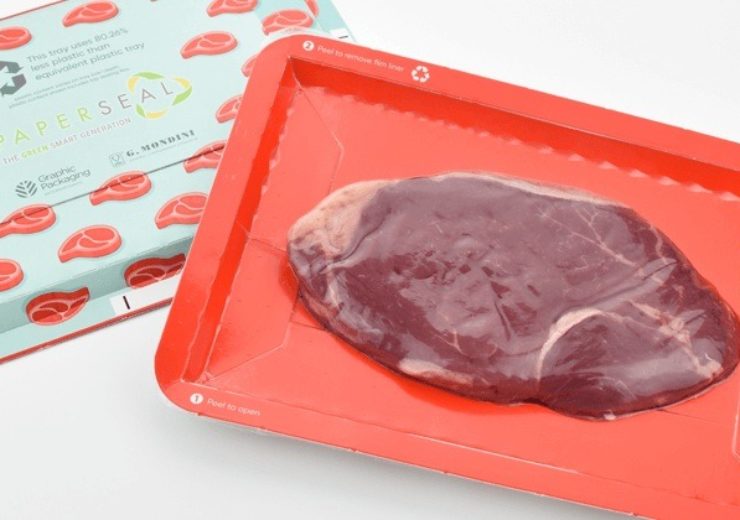The PaperSeal tray is designed as an alternative to modified atmosphere and vacuum skin packaging plastic trays

Graphic Packaging’s new PaperSeal trays. (Credit: Graphic Packaging International)
US-based consumer packaging company Graphic Packaging International (GPI) has introduced a new line of PaperSeal trays for the food industry.
The PaperSeal trays are designed as an alternative to the modified atmosphere (MAP) and vacuum skin packaging (VSP) plastic trays.
Developed in partnership with tray-sealing technology company G. Mondini, the PaperSeal trays are said to offer a robust and consistent sealing surface that is equivalent in quality to plastic trays.
The trays are ideal for a wide range of applications such as cheese, fresh or processed meat, ready-made products, frozen foods, snacks, salad and fruit.
PaperSeal trays offer up to 28 days of shelf-life
Made of 80-90% paperboard and 10-20% film depending on the dimensions of the trays, the hermetically-sealed trays are capable of providing up to 28 days of shelf-life while ensuring seal integrity.
Additionally, the film liner is designed to be easily separated from the paperboard to allow easy recycling.
Graphic Packaging Europe business development director Paul Tye said: “The transition to fibre-based packaging is a priority for many of our customers, and it’s clear that sustainable paperboard packaging solutions must meet the functionality and performance of existing tray designs.”
GPI has teamed up with UK-based food processor Anglo Beef Processors (ABP) Food Group to make the processing and packaging more sustainable.
GPI noted that the new paperboard is produced from renewable fibre sourced from sustainably-managed forests.
The Paperseal trays also reduce the carbon footprint of the supply chain as they can be stacked flat for logistics and inventory, the company said.
